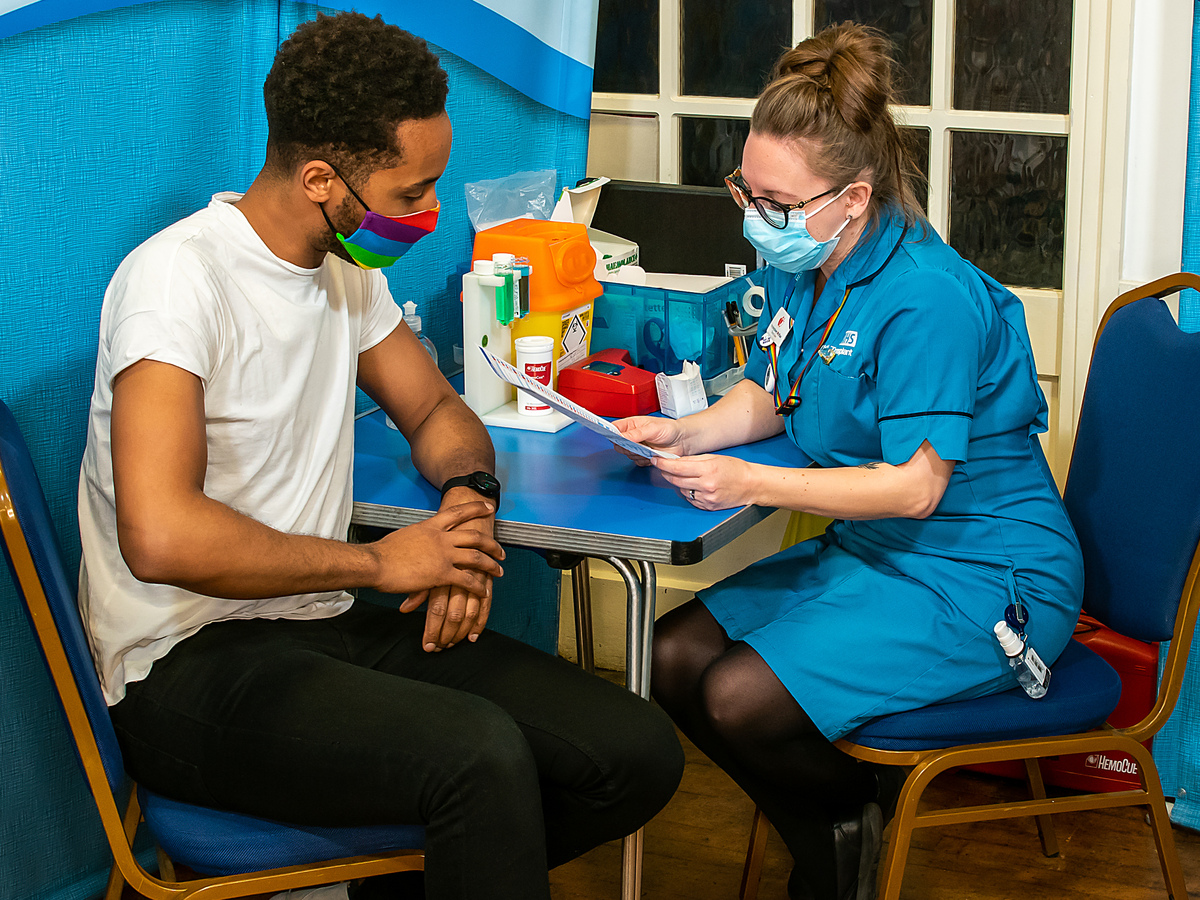Our improved donation safety check
New questions should allow more people to donate
We’ve made some changes to the questions we ask our blood, plasma and platelet donors to check their eligibility to donate. From June 14th, the form that everyone completes before they donate will ask all donors the same questions about sexual behaviours, which are focused mainly on the last three months.
The changes mean that a donor’s eligibility to donate will be based on a more individualised assessment rather than on a risk assigned to a group or population, marking a historic move to make blood donation more inclusive without affecting safety.
Ella Poppitt, Chief Nurse for Blood Donation at NHS Blood and Transplant, says, "Patient safety is at the heart of everything we do. This change is about switching around how we assess the risk of exposure to a sexual infection, so it is more tailored to the individual.
"We screen all donations for evidence of significant infections before they are sent to hospitals. Donation testing goes hand in hand with donor selection to maintain the safety of the blood supply. All donors will now be asked about recent sexual behaviours which might have increased their risk of acquiring an infection. This means some donors might not be eligible on the day but may be eligible to donate in the future.
"Our priority is to make sure that donors are able to answer the pre-donation questions in a setting that makes them feel comfortable and safe. Staff are receiving training to make sure these more personal conversations are conducted with care and sensitivity and accurate information is captured.
"We are notifying donors of the changes so they can consider the new questions before their appointment and are able to re-schedule if they do not meet the changed criteria to give blood right now. We want donation to be a positive experience and we are looking forward to welcoming donors as we move forward with these changes."
Donors will no longer be asked if they are a man who has had sex with another man. Instead, any individual who attends to give blood - regardless of gender - will be asked if they have had sex and, if so, about recent sexual behaviours. The process of giving blood will not change.

Under the changes people can donate if they have had the same sexual partner for the last three months, or if they have a new sexual partner with whom they have not had anal sex, and there is no known exposure to sexually transmitted infections or use of Pre-Exposure Prophylaxis (PrEP) and Post-Exposure Prophylaxis (PEP) medicine to prevent HIV infection. This will mean more men who have sex with men are now eligible to donate.
Anyone who has had anal sex with a new partner or with multiple partners in the last three months will not be able to give blood right now but may be eligible in the future. Donors who have been recently treated for gonorrhoea will be deferred. Anyone who has ever received treatment for syphilis will not be able to give blood.
The changes follow an evidence-based review by the FAIR steering group (For the Assessment of Individualised Risk) led by NHS Blood and Transplant, which concluded that switching to an individualised, gender neutral approach is fairer while maintaining the safety of the blood supply.
People can check their eligibility to donate using the ‘check you can give’ online tool at my.blood.co.uk/Check/0
To find out more about changes to eligibility to donate, please visit the website https://www.blood.co.uk/news-and-campaigns/news-and-statements/fair-steering-group/
FAIR concluded that the new donor selection system will maintain the UK’s status as one of the safest blood supplies in the world. The findings were accepted in full by the government last December.
Ethan Spibey, founder of FreedomToDonate, says, "We have campaigned on updating the blood donation rules for gay and bi men for over six years, believing an individualised policy based on risk was a fairer and more inclusive solution. The changes in June represent a fundamental step change to assess risk regardless of sexuality, and will ensure the UK has one of the world’s fairest and safest blood donation policies, which we believe will lead the way globally to ensure more people than ever before can donate."


